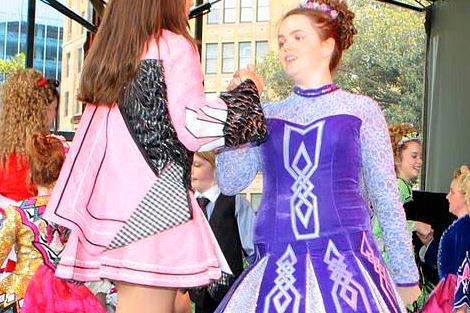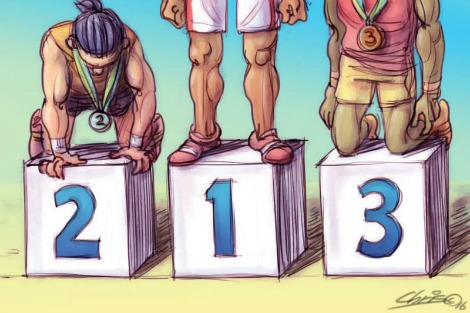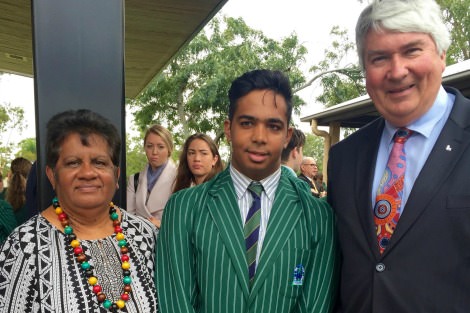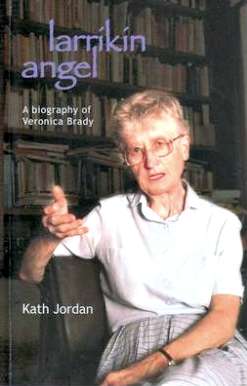Keywords: Irish In Australia
There are more than 200 results, only the first 200 are displayed here.
-

RELIGION
- Francine Crimmins
- 16 March 2017
8 Comments
My grandfather told me Patrick was a saint because he drove the frogs and snakes out of Ireland. He also told me if I stepped in a fairy ring while we were on our walks I'd disappear forever. So naturally as I grew older, I became skeptical. Each year in my family St Patrick's Day has marked a survival of Irish culture in Australia. Sometimes this can be in subtle ways and sometimes it means singing at the top of our lungs, enjoying a drink and having a dance.
READ MORE 
-

AUSTRALIA
- Neve Mahoney
- 14 December 2016
7 Comments
If the political trash-fire of 2016 has taught us anything, it's that white moderates are more than willing to throw minorities under the bus in order to preserve the status quo. It comes out in their tone policing. It comes out in calls for 'respectful' dialogue without considering how socio-political power structures mean minorities are always at a disadvantage in those kinds of conversations. Whiteness has always been a moving target and has more to do with power and privilege than skin colour.
READ MORE 
-

ENVIRONMENT
- Frank Brennan
- 28 November 2016
'No matter what the economic, political and legal problems confronted by modern day India, our response can be improved by an application of the key principles and norms developed in the international law of trade and human rights, helping to enunciate the realm of law, regulation and political accountability, enhancing public scrutiny providing the right environment for doing business.' Frank Brennan presents the 25th JRD Tata Oration, Xavier School of Management, Jamshedpur, India, 26 November 2016.
READ MORE
-

INTERNATIONAL
- Michael McVeigh
- 22 August 2016
9 Comments
Australia appears likely to fall well short of its pre-games medal target. This has led to criticism of the government's funding strategy, which has seen money poured into elite sports where Australia has traditionally been most successful or where medals seemed most likely. This approach inevitably leads people to calculate whether Australia has received 'value for money' for its investments. But it doesn't have much to do with what people actually get out of watching or being part of the Olympics.
READ MORE 
-

AUSTRALIA
- Frank Brennan
- 25 July 2016
7 Comments
Next year marks the 50th anniversary of the amendment to the Constitution which took out the adverse references to Aborigines. Following our recent election, we are assured at least six, and possibly seven, members of our national parliament who proudly claim an Aboriginal or Torres Strait Islander heritage. They are represented in all parties and none. How good it would be if our elected Aboriginal politicians could come together across party lines and propose an amendment to the Constitution which recognises them.
READ MORE 
-

RELIGION
- Frank Brennan
- 02 May 2016
2 Comments
READ MORE
-

ARTS AND CULTURE
- Jim McDermott
- 28 January 2016
4 Comments
Not long ago a priest visiting from abroad told me that the story of Spotlight doesn't really apply to his country. 'We don't have that problem here.' It's a comment you get somewhat regularly from some parts of the world. Would that it could only be true. Without a much greater willingness on the part of the institutional Church to let itself be broken and changed by what we have learned since January of 2002, it's more likely a sign of disasters still to come.
READ MORE 
-

AUSTRALIA
- Irfan Yusuf
- 25 January 2016
11 Comments
I arrived in Australia at the ripe old age of five months. I learned Australian values by a process of gentle osmosis. Many Indigenous Australians learned these values in a less gentle fashion. Today, many Australian Jews show a strong loyalty to the world's only Jewish state. Others combine loyalties with other ancestral homelands. Australian Muslims, Catholics, Buddhists and Hindus have similar broadened loyalties. Exactly how such loyalties make them any less Australian beats me.
READ MORE 
-

AUSTRALIA
- Frank Brennan
- 10 December 2015
I first met this Tony on my regular visits here to Darwin when he was working at the North Australian Aboriginal Legal Aid Service and then when he set up the mediation services under the auspices of Anglicare. In later years I knew him when he was your Anti-Discrimination Commissioner. He was a quiet, considered, gentle, strong and principled man. On Human Rights Day, it is only fitting that I honour Tony by offering some reflections on the architecture for human rights in Australia, on the contemporary human rights controversies, and on the way forward for better protection of the human rights of Aborigines and asylum seekers, two marginalised groups who had a special claim on Tony's sympathies.
READ MORE
-

AUSTRALIA
- Morag Fraser
- 02 September 2015
8 Comments
Veronica was one of Phillip Adams' 'favourite Catholics'. He likes larrikins, mavericks, with a mind of their own. Last week I sat in my car and listened to the replay of an interview Phillip did with Veronica some years back. I could not predict what she was going to say next, even as I recognised certain characteristic speech habits. There is the touch of the nun-teacher there, but don't mistake it for complacency.
READ MORE 
-

EUREKA STREET TV
- Peter Kirkwood
- 05 August 2015
13 Comments
'The question for me is: Is the Catholic Church at it's most authentic when it is covering up child abuse?' asks Adam Brereton, opinion editor for The Guardian Australia. Eureka Street TV's Peter Kirkwood talks to Catholic convert Brereton and 'cradle Catholic' Gerladine Doogue about the effect that the Royal Commission into Institutional Responses to Child Sexual Abuse is having on Australian believers.
READ MORE 
-

- Frank Brennan
- 08 July 2015
3 Comments
I suspect Pope Francis had some of our Jesuit alumni in mind when he wrote in his encyclical Laudato Si: 'A politics concerned with immediate results, supported by consumerist sectors of the population, is driven to produce short-term growth... True statecraft is manifest when, in difficult times, we uphold high principles and think of the long-term common good. Political powers do not find it easy to assume this duty'.
READ MORE